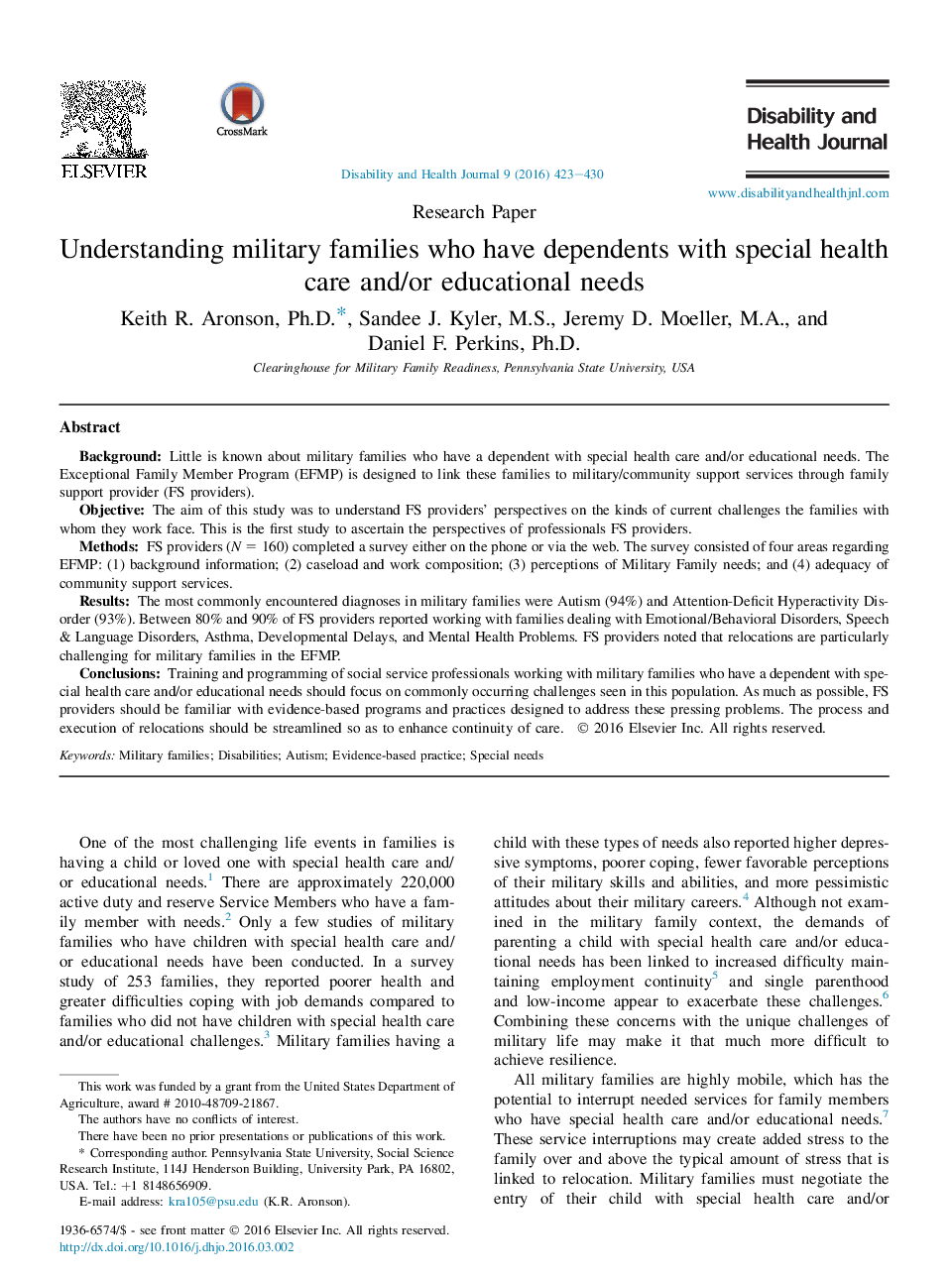| Article ID | Journal | Published Year | Pages | File Type |
|---|---|---|---|---|
| 4197126 | Disability and Health Journal | 2016 | 8 Pages |
BackgroundLittle is known about military families who have a dependent with special health care and/or educational needs. The Exceptional Family Member Program (EFMP) is designed to link these families to military/community support services through family support provider (FS providers).ObjectiveThe aim of this study was to understand FS providers' perspectives on the kinds of current challenges the families with whom they work face. This is the first study to ascertain the perspectives of professionals FS providers.MethodsFS providers (N = 160) completed a survey either on the phone or via the web. The survey consisted of four areas regarding EFMP: (1) background information; (2) caseload and work composition; (3) perceptions of Military Family needs; and (4) adequacy of community support services.ResultsThe most commonly encountered diagnoses in military families were Autism (94%) and Attention-Deficit Hyperactivity Disorder (93%). Between 80% and 90% of FS providers reported working with families dealing with Emotional/Behavioral Disorders, Speech & Language Disorders, Asthma, Developmental Delays, and Mental Health Problems. FS providers noted that relocations are particularly challenging for military families in the EFMP.ConclusionsTraining and programming of social service professionals working with military families who have a dependent with special health care and/or educational needs should focus on commonly occurring challenges seen in this population. As much as possible, FS providers should be familiar with evidence-based programs and practices designed to address these pressing problems. The process and execution of relocations should be streamlined so as to enhance continuity of care.
